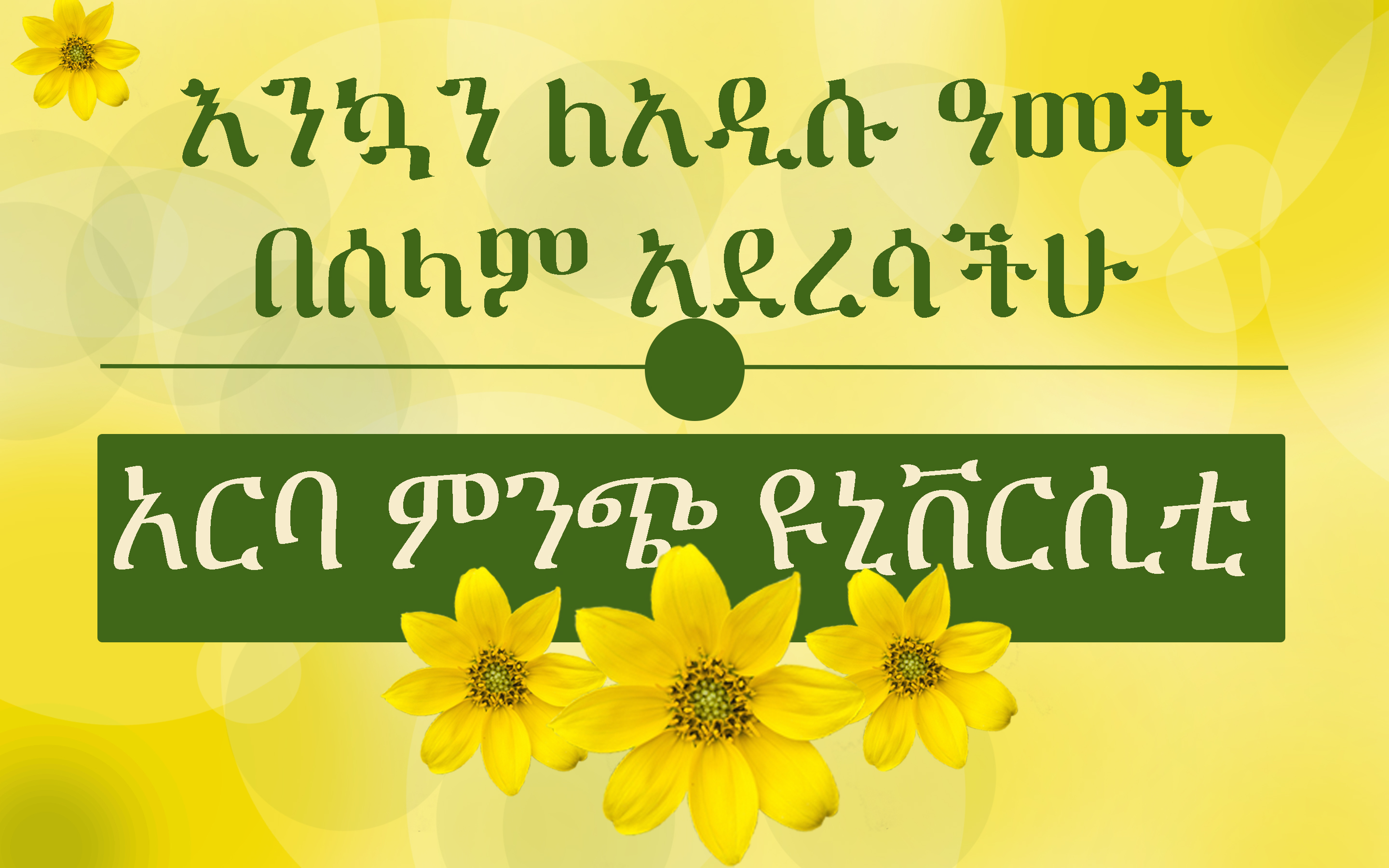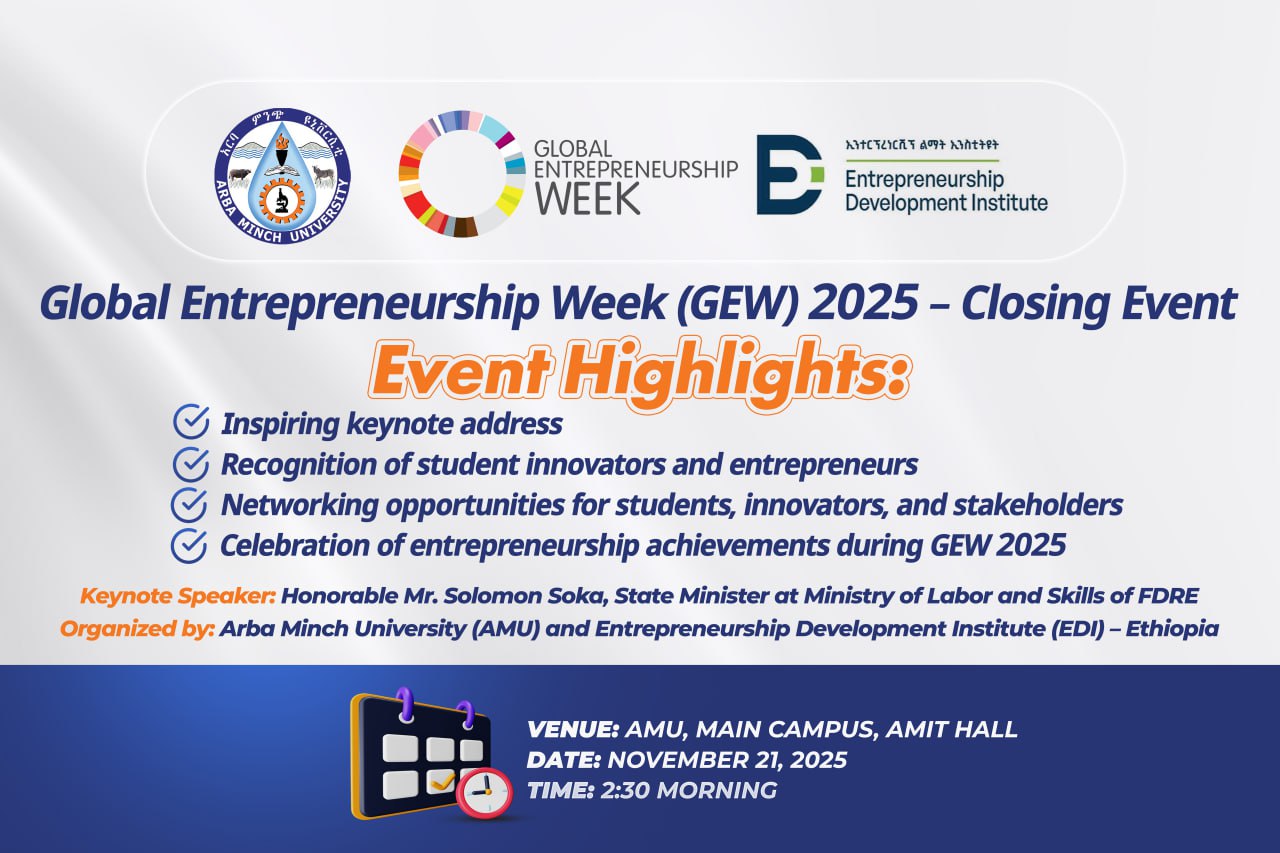Project title: Reducing land degradation through and for sustainable rural land use in the South Ethiopia Rift Valley
Post details
Institution: Arba Minch University-Inter University Cooperation (AMU-IUC) Sub-project 4
Required Number of PhD candidates to be supported: 2 (two)
About Sub-project 4 (SP4)
The South Ethiopia Rift is a region marked by significant environmental challenges, particularly concerning land degradation, which threatens the livelihoods of rural communities. The ongoing issues of soil salinization, soil acidification, soil erosion processes, and overall soil quality loss are exacerbated by climate change, unsustainable agricultural practices, and deforestation. These challenges not only compromise agricultural productivity but also endanger the ecological balance, leading to a loss of biodiversity and diminished natural resources.
In response to these pressing issues, phase 2 of the IUC Sub-project 4 (SP4) aims to research and demonstrate the relevance of effective strategies and practices that promote sustainable land management in the region. By focusing on the restoration of degraded landscapes, SP4 seeks to enhance the resilience of rural communities, ultimately leading to improved agricultural yields and sustainable utilization of natural resources. The project emphasizes participatory approaches, ensuring that local communities play an active role in decision-making processes. By integrating local knowledge and promoting capacity building, SP4 aims to empower communities to tackle land degradation proactively.
The project focuses on the Lake Abaya Chamo basin, with specific research and demonstration sites in the Sile-Elgo and Basso-Shafe catchments. The AMU IUC SP4 project is willing to support the ongoing research activities of AMU PhD students whose research topics directly contribute to the project’s objectives. This limited funding is intended solely for field data collection or lab analysis for PhD students whose research proposals have already been approved. Please note that no scholarship funding will be provided.
Budget Details:
Ø The maximum budget that PhD students can request is €1,500 per person
Ø Students must submit a detailed budget that includes all costs associated with their specific research activities (fieldwork and lab analyses).
Ø The budget should adhere to VLIR UOS guidelines for budget allocations, including a clear breakdown of expenses and justifications for each item.
Requirements and qualifications
We are looking for a candidate who is enthusiastic and motivated to significantly contribute to Sub-project 4 (SP4). The ideal candidate will possess the following qualifications:
Ø Academic Background: Currently enrolled/registered at AMU (PhD student ONLY) in disciplines such as Soil water management, Agronomy, Horticulture, Climate Change, or related fields.
Ø Strong Motivation: Demonstrated passion for and interest in soil management, land restoration, climate adaptation to reverse soil degradation, and working on a multidisciplinary project that integrates various aspects of soil health and agricultural sustainability.
Ø Research Readiness: Must have completed all coursework, their thesis proposal defended, and received approval from the examining board, with the ability to commence research work promptly.
Ø Relevant Experience: Previous experience in fieldwork, laboratory analysis, or research related to soil degradation processes and their restoration will be advantageous.
Evaluation Criteria
Ø Research Relevance: The proposed research must directly align with the objectives of SP4, focusing on sustainable land management and restoration of degraded landscapes in the South Ethiopia Rift System. The research must explicitly address issues of soil degradation processes (Soil physical and chemical degradation, soil acidification and soil erosion processes affecting the upland, soil salinity and sodicity, outlining how the study will contribute to understanding, managing, or restoring the affected soils under changing climate and land use.
Ø Research Design and Methodology: The application should present a clear and scientifically robust methodology for assessing soil degradation processes including field studies, greenhouse, laboratory analyses, or modeling approaches. Innovative methods for monitoring and managing these soil issues will be highly regarded.
Ø Effectiveness: Innovative solutions and strategies for soil management and restoration will be highly valued.
Ø Budget allocation: Reasonable budget allocation limited to field and lab analysis.
Ø Funded project activity must be completed before the end of August 2025.
Place and Date of Application:
Interested candidates should submit their applications via email (
Applications should include:
Ø Motivation letter (1 page max)
Ø Full PhD research proposal
Ø Specific research activity to be funded by the provided budget and expected outcomes
Ø Detailed budget and work plan (adhering to VLIR UOS guidelines)
Ø CV (2 pages max)
The deadline for submission is in two weeks time from the date of this announcement, and submissions must be received by 10:00 PM local time.
Notification of Results:
Final results will be announced within 2 weeks after the submission deadline. Proposals will be evaluated by a committee leading the project.

